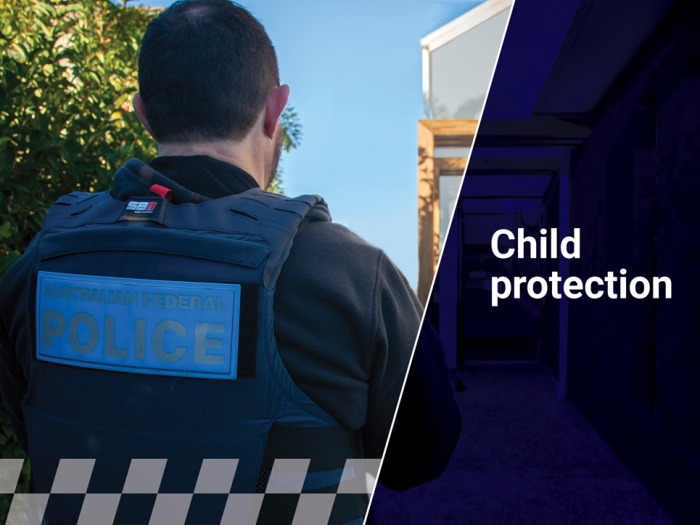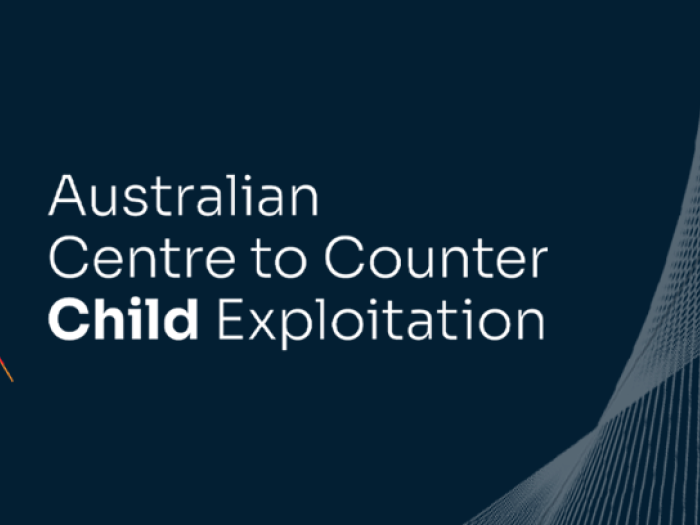Community urged to report online sexual exploitation as children head back to school
Editor's note: Audio grabs from Commander Helen Schneider are available via Hightail.
The AFP is urging parents and students to collect evidence of online child exploitation as reports of the crime type reached more than 40,000 last year – almost a 10 per cent increase compared to the previous year.
As students head back to school for 2024, the AFP is encouraging the community to not just report online child exploitation but also provide as much information as possible for investigators.
AFP Commander Human Exploitation Helen Schneider, who heads the AFP-led Australian Centre to Counter Child Exploitation (ACCCE), said the ACCCE took reports about online child sexual exploitation 365 days of the year.
"In making a report of online child sexual exploitation to the ACCCE, we are also asking the public to collect evidence as soon as possible, such as screenshots of any chats, URLs, usernames, profile information, and email addresses. This information is critical to assisting us in investigations".
The ACCCE recorded an increase in reports of online child exploitation from the past financial year, with 40,232 reports received in 2023/22, up from 36,600 in the 2021/22 financial year.
The Child Protection Triage Unit (CPTU) plays a vital role within ACCCE, acting as a conduit between the AFP, Joint Anti Child Exploitation Teams (JACETs), state and territory police and international partners.
With children heading back to school, the AFP is encouraging parents, carers and children themselves to report any cases of inappropriate, harmful or criminal activities that have occurred online to children.
Commander Schneider said the CPTU was at the forefront of the work that the ACCCE did every day to protect children from harm online.
"We cannot stress enough the importance of reports made by parents, carers and children to the CPTU and so as children head back to school for the year, we are using this as an opportunity to reiterate just how crucial these reports are in helping us to identify victims and remove them from harm."
"We also want to reinforce to victims that if something has happened to you online, you will not be blamed or punished. The report you make could help us to protect others out there who may also be vulnerable to online predators.
"The safety, care and wellbeing of children is the cornerstone of everything we do at the ACCCE and we are committed to ensuring children are protected online.
In addition to reports from members of the public, the CPTU receives reports from a range of sources, including government agencies such as Australian Border Force, AUSTRAC, the Department of Foreign Affairs and Trade, the Office of the eSafety Commissioner, as well as state and territory police and CyberTip reports via United States' National Centre for Missing and Exploited Children (NCMEC).
Once a report has been received by the CPTU, it is assessed by specialised police investigators and triaged to determine if there is enough information to establish an offence has occurred and the most appropriate course of action.
This may include the requirement for further intelligence input, referral for victim identification, or packages developed for referral to the AFP, JACETs, or state and territory police for investigation. The latter usually applies to reports where a high risk of immediate or continued harm of a child has been identified, or where either the offender or the victim has been identified.
The AFP and its partners are committed to stopping child exploitation and abuse and the ACCCE is driving a collaborative national approach to combatting child abuse.
The ACCCE brings together specialist expertise and skills in a central hub, supporting investigations into online child sexual exploitation and developing prevention strategies focused on creating a safer online environment.
Members of the public who have information about people involved in child abuse are urged to contact the ACCCE. If you know abuse is happening right now or a child is at risk, call police immediately on 000.
If you or someone you know is impacted by child sexual abuse and online exploitation, support services are available.
Research conducted by the ACCCE in 2020 revealed only about half of parents talked to their children about online safety. Advice and support for parents and carers about how they can help protect children online can be found on the ThinkUKnow, an AFP-led education program designed to prevent online child sexual exploitation.
For more information on the role of the ACCCE, what is online child sexual exploitation and how to report it visit the ACCCE website.
Note to media
Use of term CHILD ABUSE MATERIAL not CHILD PORNOGRAPHY
The correct legal term is Child Abuse Material – the move to this wording was among amendments to Commonwealth legislation in 2019 to more accurately reflect the gravity of the crimes and the harm inflicted on victims.
Use of the phrase 'child pornography' is inaccurate and benefits child sex abusers because it:
- indicates legitimacy and compliance on the part of the victim and therefore legality on the part of the abuser; and
- conjures images of children posing in 'provocative' positions, rather than suffering horrific abuse.
Every photograph or video captures an actual situation where a child has been abused.
Connect with us
Follow our Facebook, Twitter, LinkedIn, Instagram and YouTube pages to learn more about what the AFP does to keep Australia safe.
Follow the ACCCE Facebook, Twitter, Instagram and YouTube pages to learn more about what the ACCCE does to keep children safe online.



